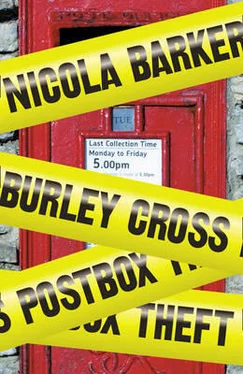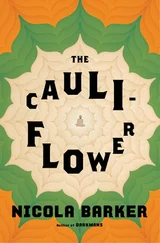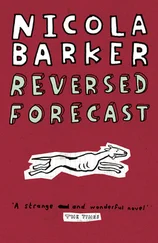The book just didn’t hang together as well as it might have — and I’d guessed the final twist by chapter four (having said that, I am very quick on the uptake. It sometimes drives my wife Moira around the bend when I leap up, ten minutes into a film or television drama yelling, ‘The transvestite did it! He killed his father to fund his breast surgery…’ etc. etc. I just can’t help it. It’s simply a knack I have).
But all credit to you for trying something different. A lot of young(er) writers don’t seem to have the gumption for that, nowadays — especially after a period of success (when a sense of complacency often tends to set in, and they end up churning out any old trash).
Of course like most people I came to your work through the TV series, which — to be frank — I thought was arty-farty and over-directed. I only watched it because my daughter, Elise, who was visiting us at the time, twisted her mother’s arm into giving it a go.
That said, I did rate Kenneth Hursley’s cartoonish portrayal of Tim Trinder, the failed private investigator turned estate manager, solving crimes on the job (while a group of idiotic coppers and social workers weighed in with their size twelves, making the already delicate racial and social relations on the estate in the swinging sixties/early seventies even more parlous than they already were!).
As a matter of interest, I saw Hursley in the new Kenneth Branagh vehicle recently and thought he looked strangely out of his depth rubbing shoulders with more ‘established’ actors (which was a shame for the poor lad. The conclusion I was forced to reach was that he was one of those actors who performs at his best when playing a role very close to his own personality — not that this is entirely a bad thing: it’s always worked for Scotland’s Sean Connery).
Now I hear they’re toting his name about as the new Dr Who! Who’d have thought it?
I suppose we’ll just have to wait and see what he comes up with for the role; although he’ll have his work cut out to do a better job than Christopher Eccleston, who brought a much needed measure of northern grit to the part (he’d be hard pressed to do a worse one than the effeminate boy they’ve had in the role since!).
In truth, I’ve never really made much of a habit of watching the show, myself. My wife watches it, on occasion. The BBC love to over-hype it — but it’s just for kids, really, isn’t it?
The TV series of Sky Turns Black was filmed in Coventry, whereas the location of the original books was Manchester’s Hulme estate. Presumably this change was necessitated by the demolition of Hulme’s (by then) notorious crescents in 1993. As a Coventry lad, born and bred, who later lived in Manchester for some years, I was naturally keen to see if this drastic southward shift would prove successful. In the end, sadly, I felt it wasn’t.
I read in a question-and-answer slot (in the Radio Times , I think it was — or possibly in something more down-market which I paged through at the dentist) that you were on a Media Studies course at the Polytechnic College in Coventry for almost a year (I know they like to call them all ‘Universities’ nowadays, but they’re not kidding anybody, are they?). I wondered if this formative experience might have been a factor in your choice of a new location?
Either way, it seems you didn’t enjoy the academic life and headed down to London to work as a runner for a film company before later moving into advertising where you worked on campaigns for Dairylea Cheese Triangles, and, later, Dove moisturizing underarm deodorant (I can’t distinctly recall the adverts for either of these products, although I do remember partaking of the odd cheese triangle when my children were young, and while they weren’t anything spectacular they were certainly perfectly edible).
Not only did I grow up in Coventry, but (cue the drum roll!) my father was the caretaker on a housing estate near the city centre for several years! I have extraordinarily strong childhood memories of the post-war geography of the town, and was a first-hand witness to the radical changes that took place from the late 1950s onwards (although I was lucky enough to move further north in 1964).
I won’t pretend that there is much of the Coventry I knew so well as a boy present in your TV series — or, indeed, of the Manchester I knew later on in your books. It’s obvious where the gaps in your knowledge are, but I like to think that this isn’t simply a lack of good, detailed research on your part, but rather an author’s artistic prerogative to reinvent a location (or setting) to better explicate their character and their plot.
When it comes to the ‘caretaking’ aspect of the books, I also have (as mentioned above) a special insight into this particular area of endeavour, although of course my father, Ken, was nothing like Tim Trinder; he didn’t suffer from childhood polio, for starters (his hand was not malformed, and he didn’t walk with a limp), nor was he given to dramatic flights of fancy on the job. He was, as you might expect, a very sensible, responsible member of the Coventry community (a stalwart of the Rotary Club), a much liked local figure with a great talent for plumbing (something he later exploited by becoming a plumber, full-time).
It never ceases to amuse me how little practical information about the caretaking trade is present in your fiction. I suppose I must just accept that this aspect of the narrative is probably more interesting to me than to the average reader because I have so much technical know-how and a personal knowledge of ‘the business’, so to speak.
This is not to imply that I am a caretaker myself — heavens no! I was lucky enough to pursue my childhood dream of becoming a member of Her Majesty’s Royal Navy where I trained as an electrical engineer. Since leaving the forces I have made an excellent living in the security industry (running a company that manufactures burglar alarms. My son, Nick, has continued this upward gradient and is currently working in astro-physics).
While I’m about it, I suppose I should make a glancing reference to your latest novel, Fast Track , where failed policewoman turned British Rail Station Manager Hilda Fisher is horrified to find a number of her regular passengers (or ‘customers’) dying in a series of lethal ‘accidents’ and is obliged to step in to stop clod-hopping local detectives (and BR big-wigs and PR gurus) from botching up the investigation.
I haven’t read the book myself (it’s way out of my ‘comfort zone’), but my wife Moira did after it was selected by her local book group (I think their interest was piqued by the Harrogate setting).
The novel was systematically ripped to shreds, Moira said, because most of the group (all women) said the female lead ‘thought and behaved just like a stupid man’. I wouldn’t let this get you down, though. Moira said most of them didn’t know what they were talking about, having cast the book aside, in disgust, after only the first chapter.
On a more personal note, I have long been fascinated by your unusual name. It’s a strange combination of Vespers (evening prayer) and Vespa (the Italian scooter manufacturer). I looked it up recently in my Encyclopedia of Names (I’d been considering giving the name to the hero of my first novel, a reformed sex abuser who has been made sole custodian of a small Romanian boy — I won’t bother you with the backstory, but it’s all perfectly credible — and is then obliged to go on the run with him to keep him from the clutches of a Russian crime syndicate).
Your name wasn’t actually listed in the encyclopedia (the closest it came to was Vesta — the Roman goddess of the hearth, used in the UK during the 1850s). When I looked in my dictionary, though, it said: Vesper n. [L.] 1. a) orig., evening b) {Poet.} [V-] same as EVENING STAR.
Читать дальше
Конец ознакомительного отрывка
Купить книгу












